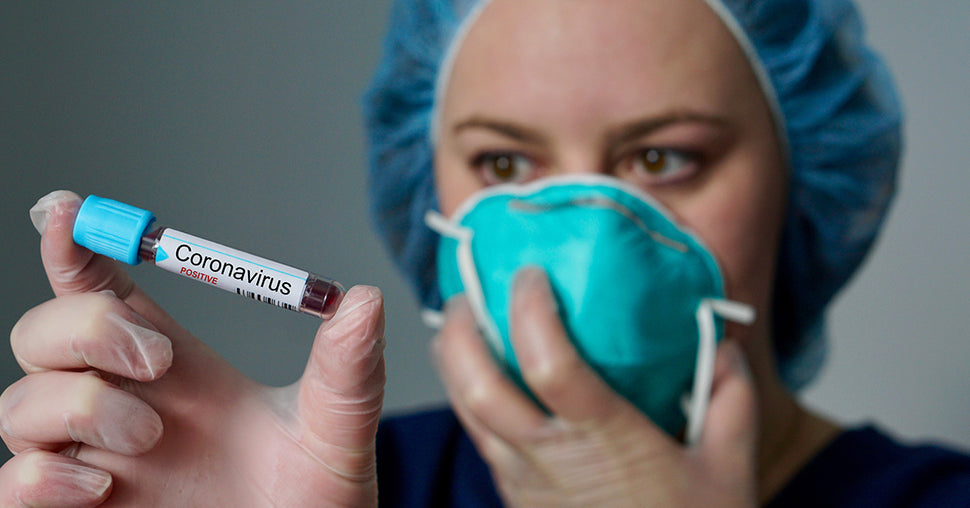Coronavirus: What Do We Know & What Can We Do?
01 Feb 2020
At the end of December last year, Chinese health officials informed the World Health Organization about a new virus that was resulting in pneumonia-like symptoms in the city of Wuhan. Investigations by authorities have determined that the outbreak was due to the SARS-CoV-2 virus or in simple terms the coronavirus and that it was rapidly spreading, across countries.
As of Wednesday, more than 4,500 cases of coronavirus have been confirmed in China, of which 132 have been fatal. Several confirmed cases have been detected in Hong Kong, Australia, Thailand, France, Japan, Taiwan, Vietnam, Singapore, South Korea, Macao, and Nepal.
The Indian government is preparing to evacuate citizens from China following the outbreak. People with travel history to China have been screened and kept under isolation as a precaution. The government has also set up a round-the-clock helpline number to attend to queries about the virus and the outbreak. Furthermore, special wards have been set up in New Delhi to treat suspected coronavirus patients, and the centre has ordered the setting up of such quarantine wards in other states as well.
Origins

Coronaviruses are a large family of viruses common in various species of animals, including bats, camels, cats, snakes, and cattle. This virus is zoonotic, which means that it can be transmitted between animals and people. In the 21st century, there have been two outbreaks of coronaviruses, causing the Severe Acute Respiratory Syndrome (SARS) outbreak in 2002 and the Middle East Respiratory Syndrome (MERS) outbreak in 2012. About 858 people died from MERS, while 74 people succumbed to SARS .
Known as 2019-novel coronavirus (2019-nCoV), the recent outbreak has been traced back to an animal, seafood, and poultry market in the city of Wuhan. Since then, China has temporarily banned the sale of wild animals at wet markets and has effectively placed millions of people on lockdown, blocking expressways and canceling all flights and trains out of the region.
Symptoms
According to the WHO , COVID symptoms are similar to other respiratory diseases. Common signs include fever, cough, shortness of breath, difficulty breathing, sore throat, and a runny nose.
These symptoms usually appear within 2 weeks of contracting the virus and the infected people are to be strictly kept under observation, in isolation. The international health agency further added that severe infections can lead to kidney failure, lower-respiratory tract illnesses such as pneumonia or bronchitis, and can even be fatal. It is said that the elderly, those with underlying health conditions and the ones with a compromised immunity are at a higher risk of facing severe complications if infected.

Precaution
As of now, there is no vaccine or treatment available for the coronavirus. There’s still a lot that we don’t know about the virus. As the virus spreads across the world, health officials are scurrying to learn more about it and the ways to contain the coronavirus outbreak.
Since the virus spreads through coughing or sneezing like cold and flu, hand hygiene is the first and foremost step towards protecting yourself from getting infected. Frequently wash your hands with an alcohol-based hand sanitizer or soap and water . Regularly clean and disinfect surfaces commonly used and all the devices you use and handle regularly. When coughing and sneezing cover your mouth, nose and avoid close contact with anyone with cold or flu-like symptoms. Wear a cloth mask when you leave your house. As the virus spreads when a person sneezes or coughs, it is advisable to wear masks in a heavily crowded area. If you have been infected, wearing a mask also prevents you from spreading the virus to others.
Practice food safety, making sure raw meat is cooked thoroughly and properly handled during food preparation. Avoid unprotected contact with wild, stray or farm animals. If possible, avoid visiting animal markets and indulging in meat, poultry, and seafood.
If you have fever, cough or difficulty breathing, it is important to seek medical care immediately. The treatment is primarily supportive care, that is, making sure that the patient is getting enough oxygen . Additionally, taking proper rest with plenty of fluids is vital for recovery from coronavirus.
For any information and assistance related to the coronavirus virus, you can call on the national helpline: 011-23978046.
Skin: Renew - Glutathione - Orange Flavour
- ₹1,994
- ₹1,994
-
₹2,600 - ( 23% OFF)
Categories
- Choosing a selection results in a full page refresh.
- Press the space key then arrow keys to make a selection.
this is the sidecart











